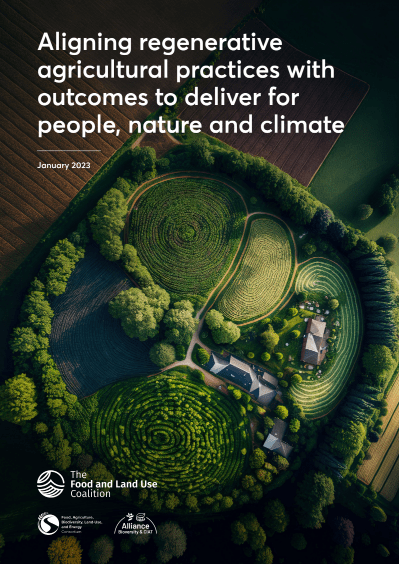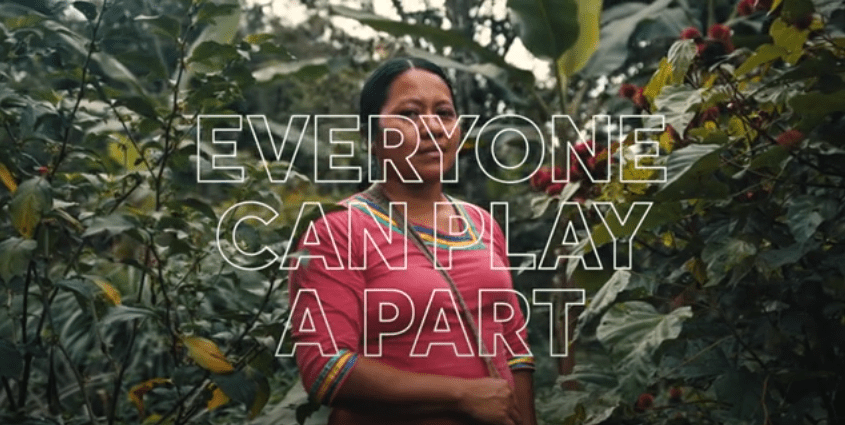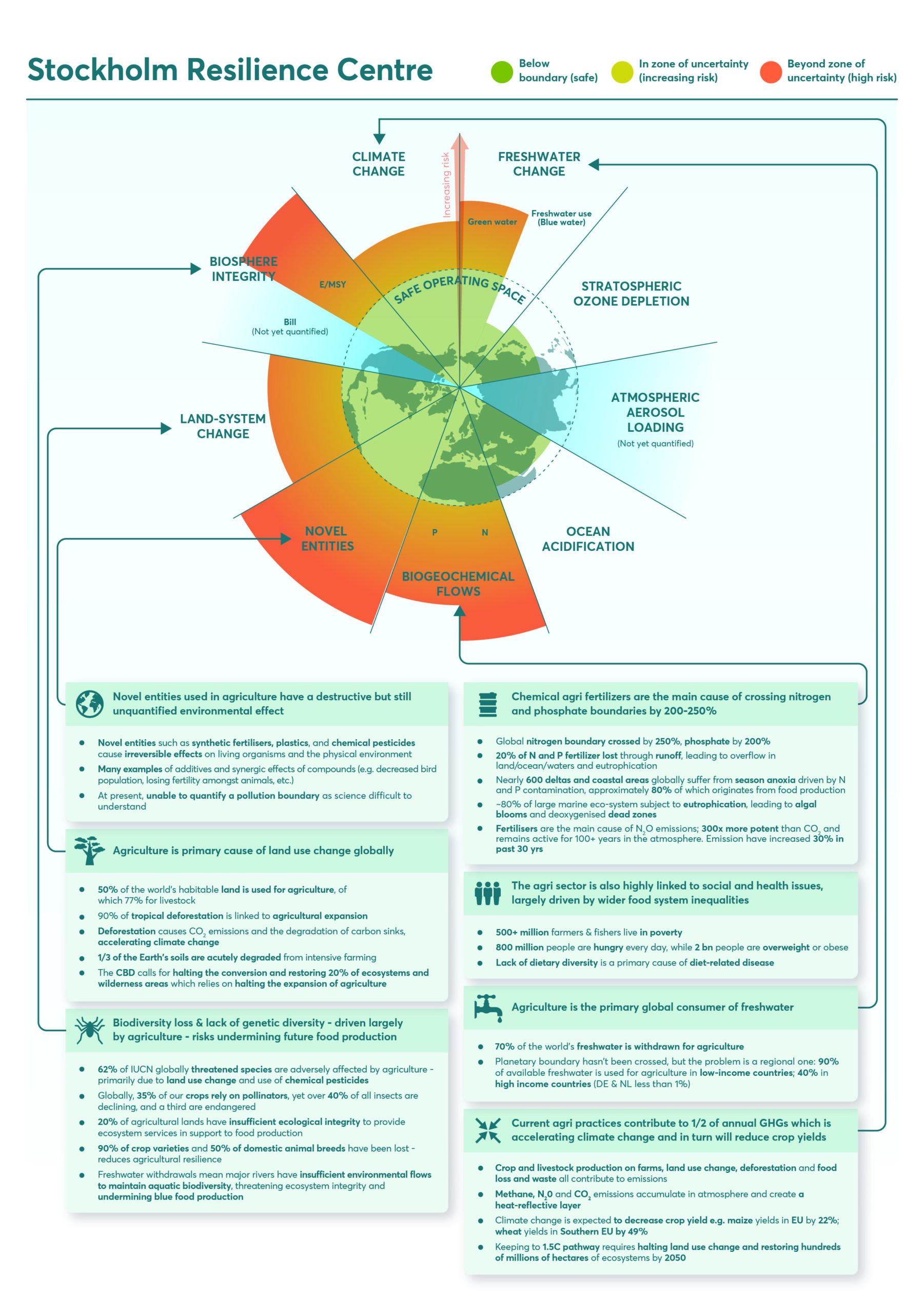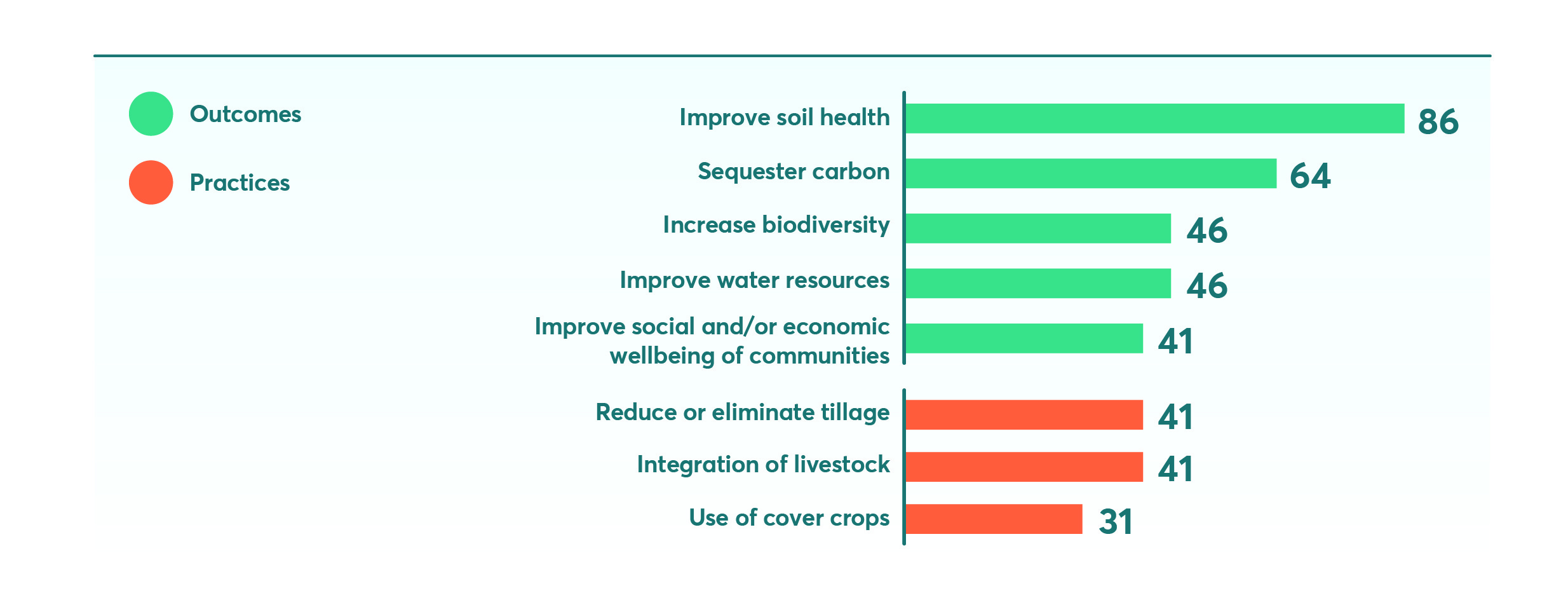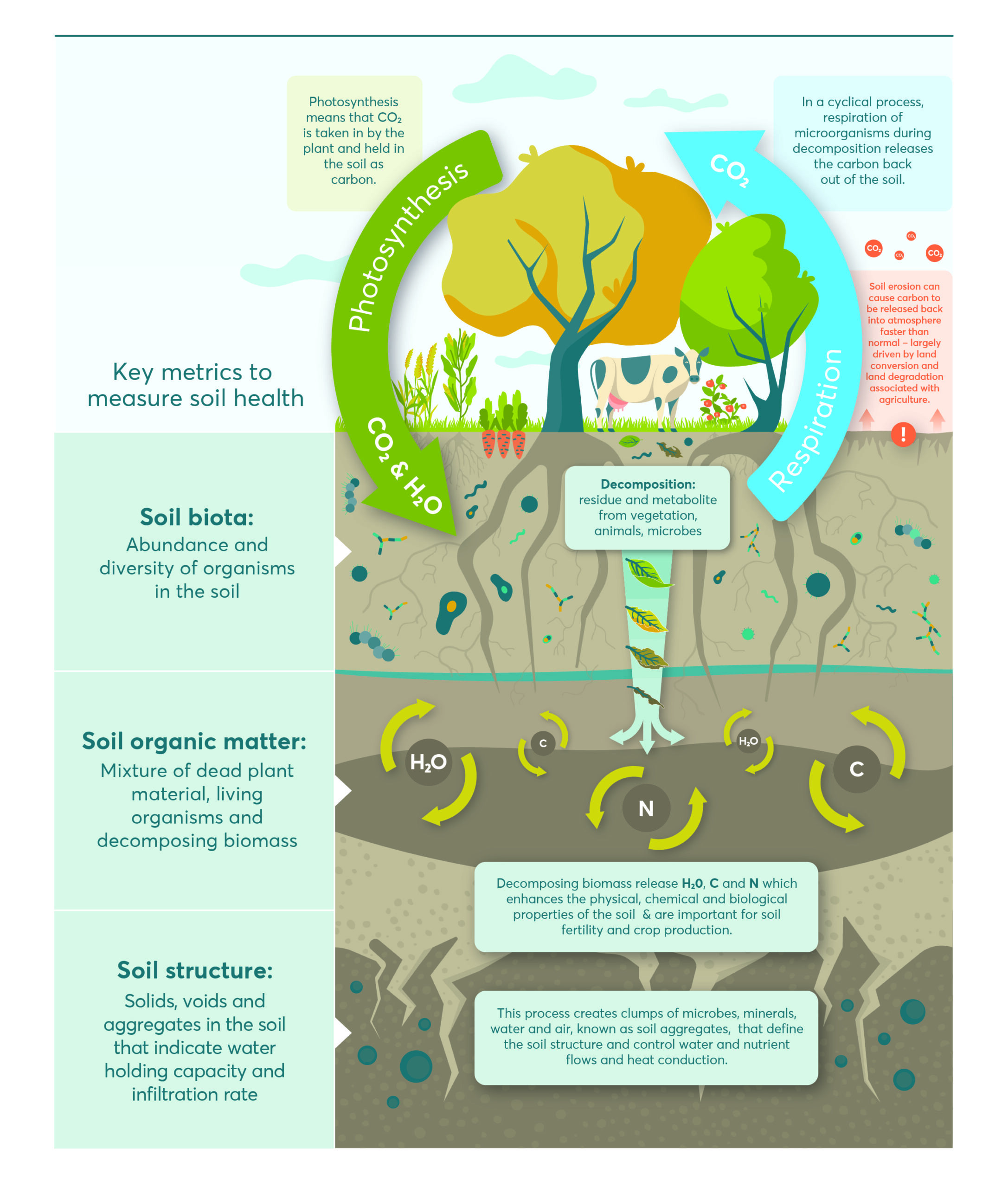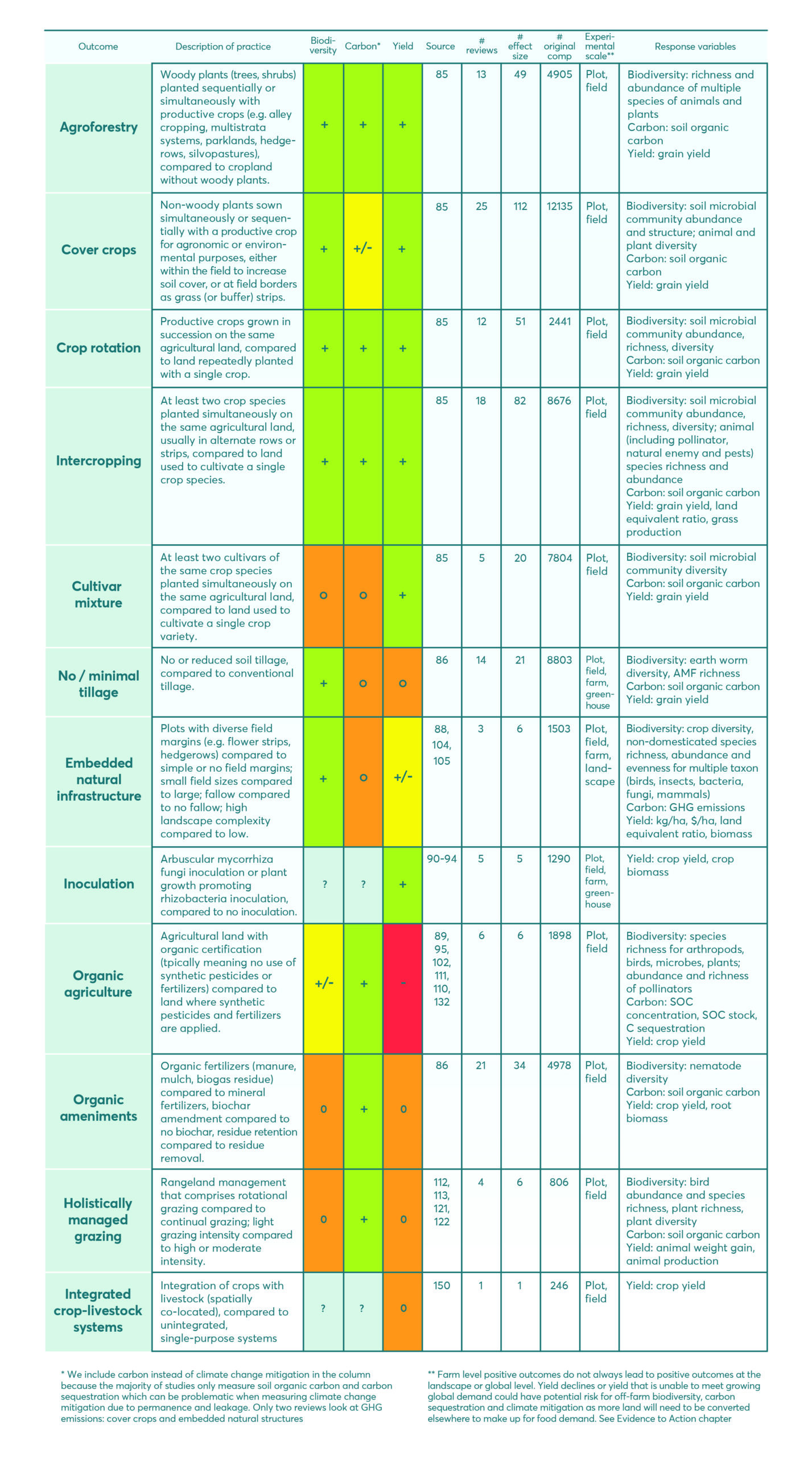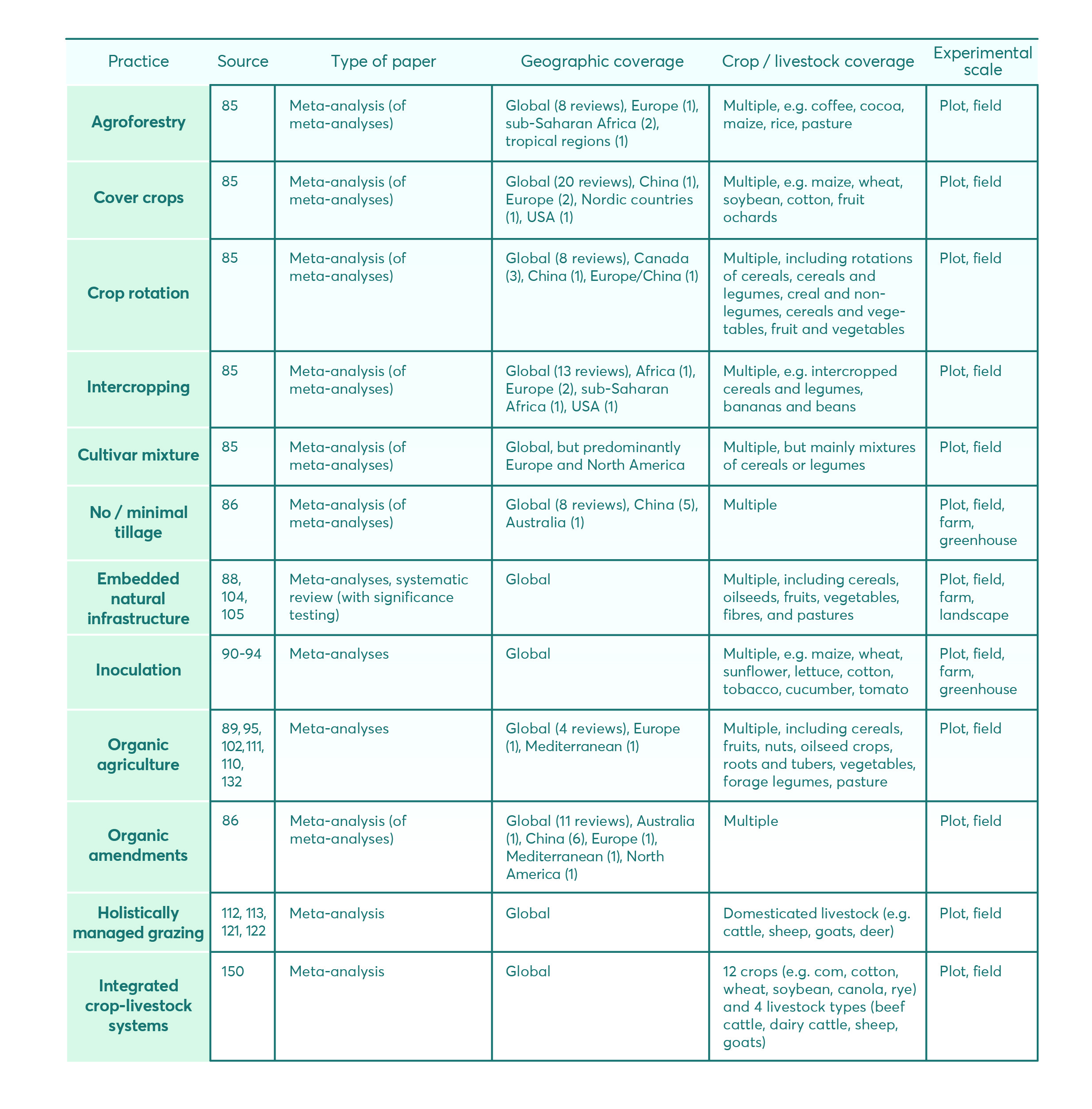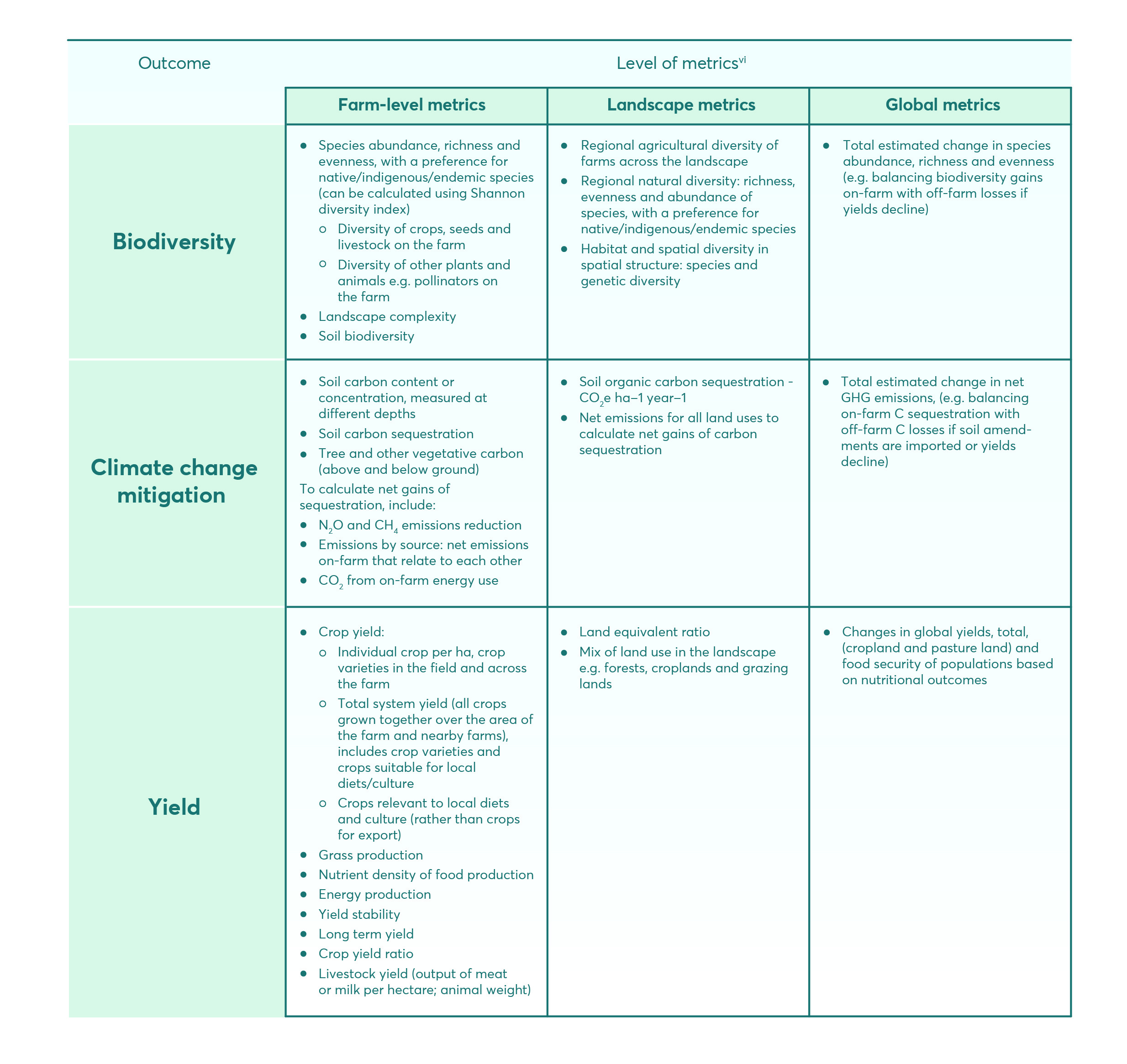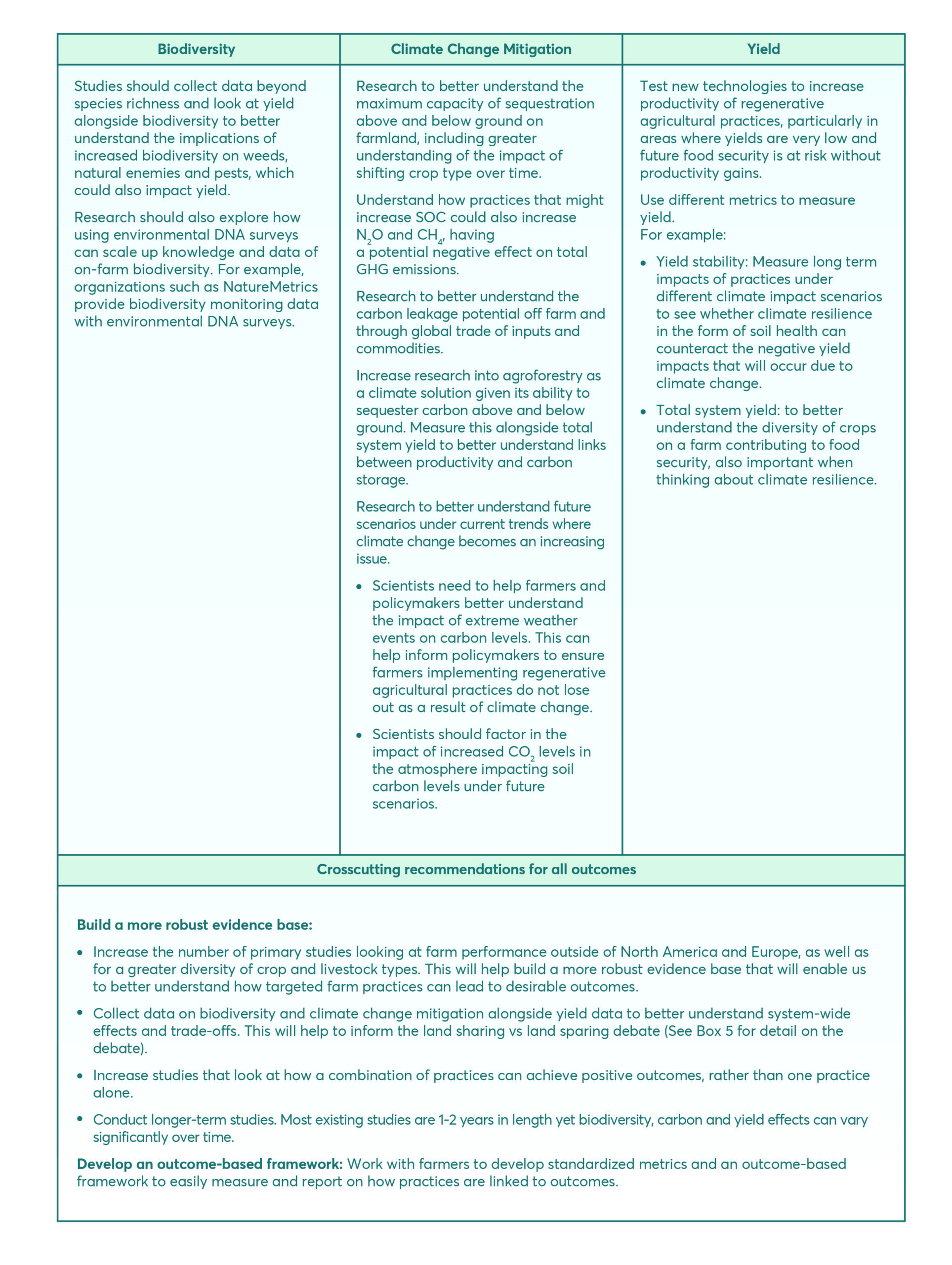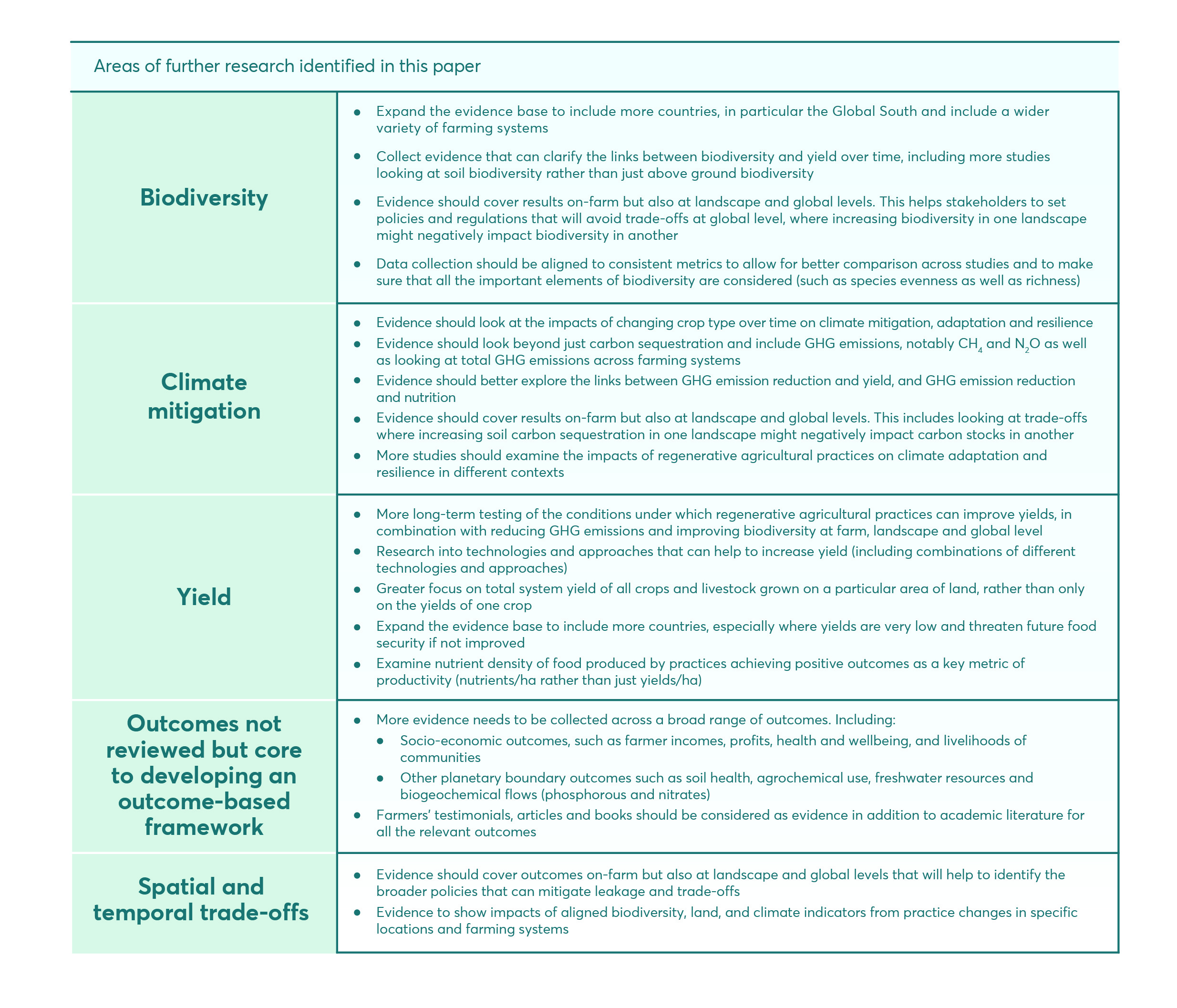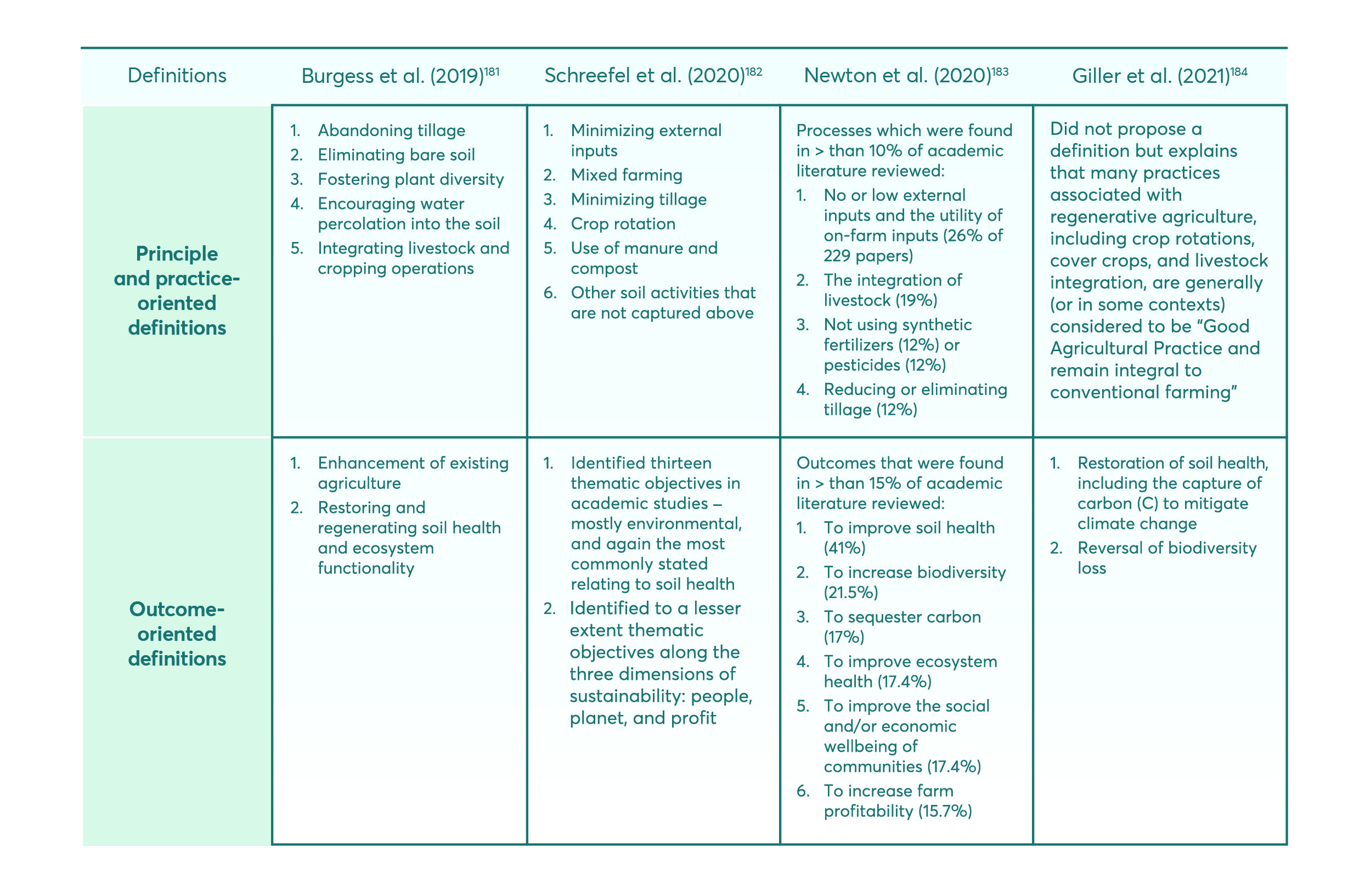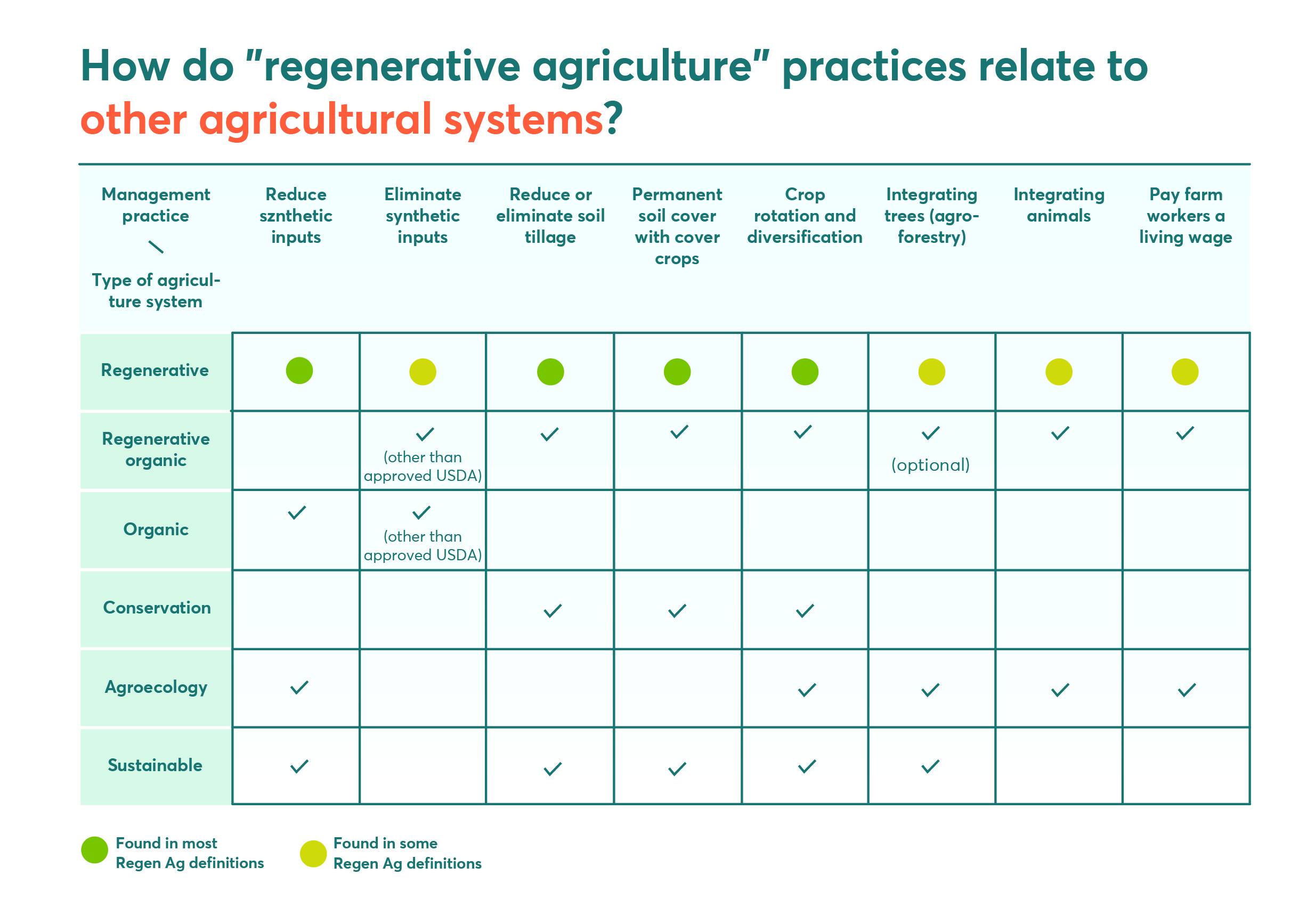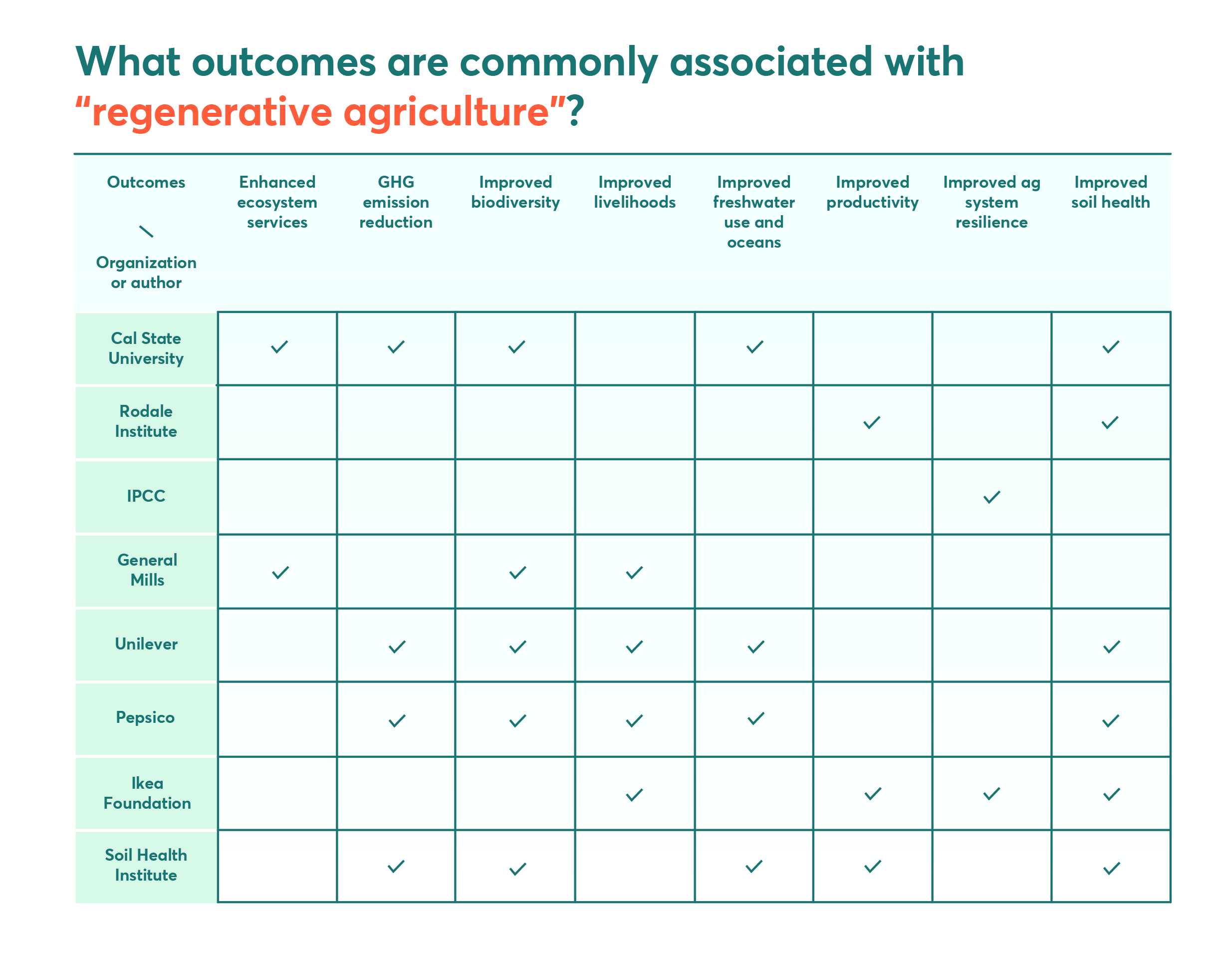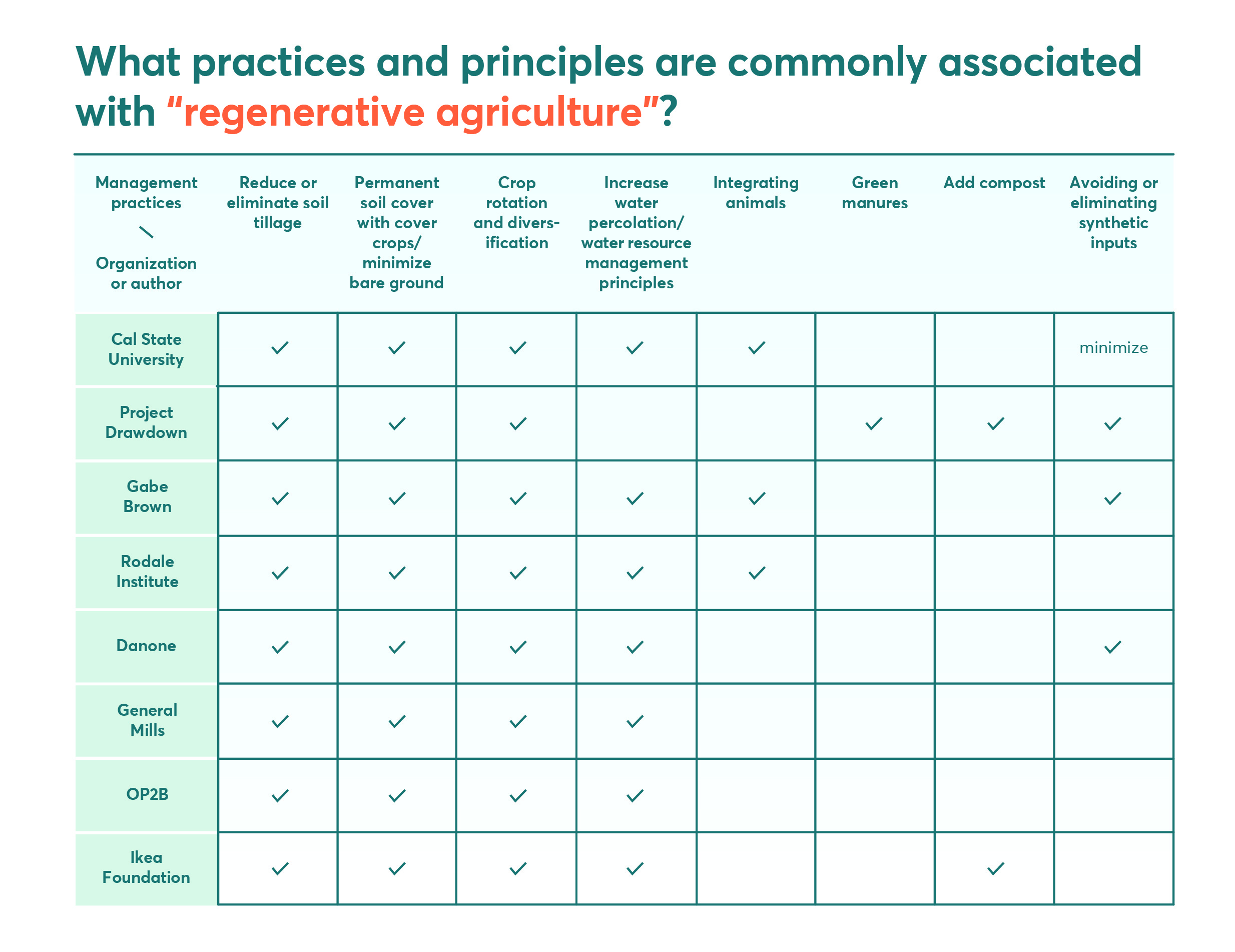Aligning regenerative agricultural practices with outcomes to deliver for people, nature and climate
18 01 23
Agriculture is the largest global source of ecosystem degradation and biodiversity loss, the largest water user and a key driver of climate change. Furthermore, food systems themselves are greatly threatened by these negative environmental impacts.
“Regenerative agriculture” is gaining increasing interest amongst agri-food industry leaders, civil society organizations and farming communities as a potential solution. Although a universal definition does not exist, regenerative agricultural practices generally aim to improve soil health, enhance water infiltration and storage, increase the resilience of farms, and reduce reliance on chemical inputs.
But there is currently an inconsistent understanding of what “regenerative agriculture” is, the practices it entails and outcomes it can achieve.
This report highlights the need to create an outcome-based framework for measuring, assessing and scaling regenerative agricultural practices that benefit people and planet. It includes a review of evidence on how specific practices link to three important farm-level outcomes: biodiversity, climate change mitigation and yield, along with recommendations for stakeholders.
“Regenerative agriculture” is gaining increasing interest amongst agri-food industry leaders, civil society organizations and farming communities as a potential solution. Although a universal definition does not exist, regenerative agricultural practices generally aim to improve soil health, enhance water infiltration and storage, increase the resilience of farms, and reduce reliance on chemical inputs.
But there is currently an inconsistent understanding of what “regenerative agriculture” is, the practices it entails and outcomes it can achieve.
This report highlights the need to create an outcome-based framework for measuring, assessing and scaling regenerative agricultural practices that benefit people and planet. It includes a review of evidence on how specific practices link to three important farm-level outcomes: biodiversity, climate change mitigation and yield, along with recommendations for stakeholders.
Theodora Ewer
SYSTEMIQ
Talia Smith
SYSTEMIQ
Seth Cook
SYSTEMIQ
Sarah Jones
Alliance of Bioversity International and CIAT
Fabrice DeClerck
EAT
Helen Ding
WRI
media contacts
Sophie Mongalvy
sophie.mongalvy@wri.org
WRI
Klara Nilsson
klara.nilsson@wri.org
WRI
